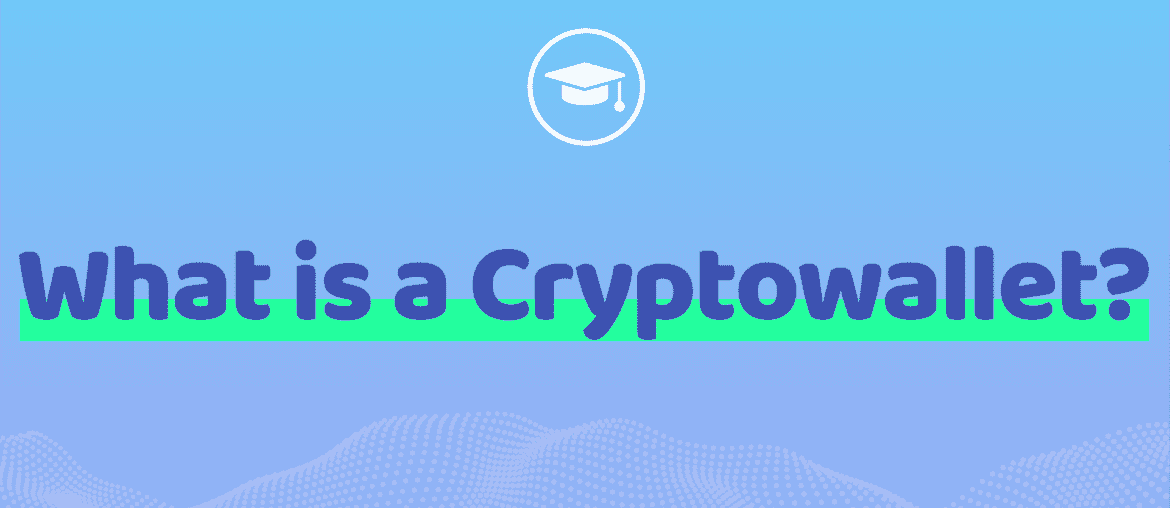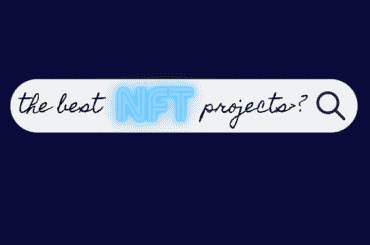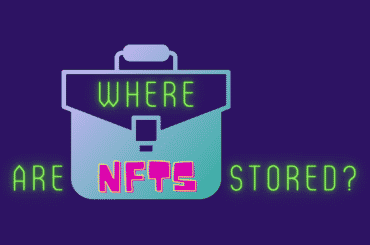You are ready to dive into the world of cryptocurrency. But where do you even start? What do you need to get going? Do you need hardware, software, wear and tear? What are the required tools of the trade, and how does it all work?
These are all great questions, and it is helpful to fully understand the concept of crypto before you become invested. So where does one begin?
Table of Contents
A Place To Store Your Crypto?
A good place to start is with the tools you will need. One of the most important tools required for obtaining, storing, buying, trading, or selling cryptocurrency is the use of a crypto wallet. But what is that exactly, and where does one obtain such a thing?
For starters, it may come as a shock to know one key factor: crypto wallets do NOT store crypto. Instead, a wallet actually is a place to store private keys. Hang in there, it’ll make sense soon.
An Online Bank Account, Sort Of …
A crypto wallet is often compared to an online bank account. And, in layman’s terms, this is semi-correct. A crypto wallet is a digital account, stored only online. However, it is not like a bank account in that it is not backed or overseen by a banking institution or governmental institution, such as the Federal Deposit Insurance Corporation (FDIC).
With traditional bank accounts, the FDIC, an independent agency formed by the United States Congress, is designed to “back the dollar.” It is ensuring that your hard-earned money is truly there, and always will be if kept in a bank account.
It was created in order to give stability to the common U.S. Dollar and to gain and maintain the public’s trust when it came to funds.
But Also Very Different
A crypto wallet does differ greatly, however, from a traditional bank account, even the online kind. It is a place to “store” finances, but there is no traditional money in a crypto wallet. There, technically speaking, is not even crypto in a crypto wallet.
Instead, only keys can be held in a crypto wallet.
The other crucial difference is that you are in control of your crypto at all times in the most used of the crypto wallet apps, which are dubbed non-custodial. These allow the owner to always be the controller of the crypto. That owner holds all keys in cryptocurrency wallets.
Cryptocurrency Wallet App
In order to obtain a crypto wallet, a user must seek an account from an application. Companies such as:
- Rainbow Wallet
- MetaMask
- TrustWallet
These apps are almost always free to download and to begin a wallet. Mobile wallets, as the name implies, are typically housed on a Smartphone. A wallet app makes these online wallets as convenient as most online banking accounts, payment apps, and, of course, the old-fashioned, traditional, real-world wallet.
A Crypto Wallet Is Not A Crypto Exchange Account
Just like the wallet you carry in your pocket is not the New York Stock Exchange, the crypto wallet is not a crypto exchange account. If you are using a cryptocurrency exchange, this account is not the same as a crypto wallet.
For starters, a crypto exchange account is not non-custodial. In other words, a crypto exchange account app is in control of your money. You are not.
If you have your money on an exchange or are seeking to find one, those apps are entirely different from those that operate wallets. These apps include:
- Coinbase
- Kraken
- Binance
A Non-Custodial Crypto Wallet
Typical newbies to cryptocurrency are in search of a non-custodial crypto wallet. In fact, it is rare for an individual to need a third party to oversee his crypto. Major corporations that operate the exchange of huge amounts of crypto may need a specialized overseeing party, but the typical user does not.
The non-custodial crypto wallets simply mean you are the owner of your keys. No one else is in control, nor supervising, your exchanges.
Not Just an App
Crypto wallets, just like a traditional real-world version, come in many shapes and sizes. Just like you may carry a leather, designer wallet, one made entirely of duct tape, or a retro canvas one sealed with Velcro, you are able to pick the size, style, and accessories in a wallet. The same is true of a crypto wallet.
In fact, Ledger is a company that sells a hardware wallet that resembles a USB thumb drive. These operate much like an app or website but can be removed and toted about with you, right in your pocket, instead of installed onto a device such as a phone or a laptop.
Many users prefer a web app when working on a mobile platform. But, if a hard drive is more your style, know you have options in the digital assets world.
A Paper Wallet
If a physical object, such as a thumb drive-like wallet, isn’t tactical enough for you, there is even a paper version. A crypto paper wallet relies on keys that are kept on a physical medium, such as you guessed it: paper.
Clearly, the security of such a technique is not advisable, as it may be difficult to protect such information. Additionally, the thought of storing keys to a digital platform on paper just seems. well, strange.
Some users, however, find peace of mind in paper wallets knowing that their information is not out there in the online world, at all. It is not online, and thusly safer hidden in a physical, paper notebook on your desk.
Best of Both Worlds
There are also paper wallet import applications, that allow you to store items in a “best of both worlds” kind of way, writing things on paper, but then scanning them digitally to store as you wish. These wallet app updates allow you to first store things in a hard copy, such as on paper, while also having the ease of the mobile cryptocurrency wallets at your fingertips.
If you wish to both have hard copies, but yet have a mobile device that carries the data, consider these scanner-type applications. This allows the old-school paper lovers a mobile crypto wallet, but still the safety of a hard copy, as well.
Whether you choose paper wallets, a software wallet, hardware wallets, or a cryptocurrency wallet app, keep an eye out for new crypto wallet development. This is a fast-changing technology, with updates happening daily.
Why You Need A CryptoWallet
Crypto wallets are the required gear when you are heading into the crypto universe. These wallets are necessary if you aim to become involved in lending protocols, buying or collecting NFTs, or operating in decentralized exchanges.
However, these wallets are not like the traditional wallet. One may think, based on the old-school version, which carries your money, that a crypto wallet carries crypto. In technical terms, a crypto wallet is more like a keychain than a wallet.
A crypto wallet is designed to hold the keys you need to access your own, private cryptocurrency. Cryptocurrency itself is stored on a blockchain, within its block. You don’t own that block, per se. It is a part of the publicly shared blockchain.
Holding the Key
Within your crypto wallet is your private key, which is how you prove ownership of digital money. A private key also allows you to make transactions with said digital money.
Your private key is certainly one you do not want to lose. There is no digital locksmith to recover this information. Once a key is lost, so too is the access you have to your digital money.
If you choose to carry hardware or version, don’t lose that! If you feel you even might, it may be best to store your key in an online app.
What Do Crypto Wallets Do?
When it comes right down to it, there are several things that owning a crypto wallet allows for in your online, digital money universe. For example, in order to
A Wallet For Each Occasion
If you change purses to match your outfit, you totally understand the need to have a wallet for each occasion, too. However, in this context, we are not talking about your fashion sense.
Instead, it is important to understand that unique crypto wallets are required for different blockchains. For example, one of the most popular crypto wallet apps is currently MetaMask. It is an app that works with supports just a handful of networks, including Ethereum, Binance Smart Chain, Polygon, and Avalanche.
These networks all work with the MetaMask because they are also all chains that operate with the Ethereum Virtual Machine (or EVM).
If you aim to use Bitcoin, though, a MetaMask wallet just won’t do. It is the fashion equivalent of toting your wicker, beach wallet inside your black, satin evening purse.
Bitcoin Wallets
Bitcoin, which is a separate entity from Ethereum, does not allow non-Bitcoin wallets to access accounts on its blockchain. Instead, you must find a wallet that “goes.” It must be a Bitcoin wallet to operate on the Bitcoin network. Trust Wallet, for example, does work with Bitcoin. Coinbase, which went live in April 2021, is an example of a Bitcoin wallet app.
Most cryptocurrency wallets will state clearly which forms of crypto do and do not work on their application. Use caution when making your selections, especially when you are just starting out. If your aim is to store Bitcoin, make sure the cryptocurrency wallet you select to hold your private digital keys, just be sure that the Bitcoin blockchain is compatible.
Digital Wallets and NFTs
If you are diving into the world of cryptocurrency, as well as NFTs, there are extra hurdles to keep an eye out for when making a choice. Most wallets are designed to handle fungible tokens, such as Ethereum and Bitcoin.
However, if you aim to get involved in NFTs, you may want to check out marketplaces like OpenSea. This marketplace, which is not actually a wallet, will automatically display your Ethereum NFTs if you connect your wallets. Likewise, Rainbow Wallet displays NFTs within its app, too.
If NFTs are your goal, just like seeking Bitcoin exchanges, you need to read the fine print, and be sure that they are compatible and display in easy-to-read formats.
The Keys to a Perfect Wallet
Your crypto wallet will typically have two main keys within its storage. Those keys include one private key and one public key.
A Public Key
The public key is something like your bank account, or if you are familiar with money transfer apps or a cash app, such as Venmo, it is much like your code. This is a key you can share with others. It is the outfacing QR-code or number that you give to others to receive payment.
If you use Venmo, you share your QR-code with another person, who seeks to pay you. They can simply use a QR code scanner, and bam. They can instantly transfer funds into your account.
No one fears using these QR codes because they are just the outward-facing mechanism that ties your information to your friend’s information, allowing a transfer of funds to occur.
A Private Key
A private key makes the buying, selling, or trading of crypto convenient amongst digital wallet owners. However, it is the private key that is the portion you keep to yourself. Remember, this key is proof that you own digital assets.
Crypto wallets do not store your crypto physically. Crypto is stored online. They are a part of blockchain technology. Users of blockchain technology find security in its public ledger features. However, you of course don’t want everyone knowing your personal business at the same time.
To keep your information yours, the second component of a crypto wallet is your private key. Think of these two pieces of the puzzle as your bank account and your PIN. You can give out your bank account number. In fact, if you recall such antiquated relics as the paper check, it was printed right on there, for anyone to see.
However, you don’t go handing out your private identification number, announcing it to the world so that just anyone can access your debit card and its holdings. Likewise, you may use your email address to log into your online banking accounts. But, you don’t share your password for logging in with anyone in order to keep your private information private.
The private key is just like that PIN or log-in password. You do not want that information accessible to the public, so you keep it to yourself. You keep it in a cryptocurrency wallet.
Our Powers Combined
With these two components, both a public and a private key, your cryptocurrency wallet ultimately stores all of the information you need to create a cryptocurrency wallet. Mobile and backend developers are working each day to bring new and creative app development to the table. This is a growing technology, bound to continue to grow and change daily.
Digital currencies themselves are still in infancy when it comes to web wallets. Crypto trading, different digital currencies, and wallet app development (including Bitcoin wallet app development) change constantly. They are tech to certainly keep an eye on frequently.
With an ever-changing online world, of crypto wallet app development, it is important to stay informed of the latest and most current technology. From desktop wallets to software wallets, mobile wallet, and their paper counterparts, it is a fast and exciting world of digital currency.





